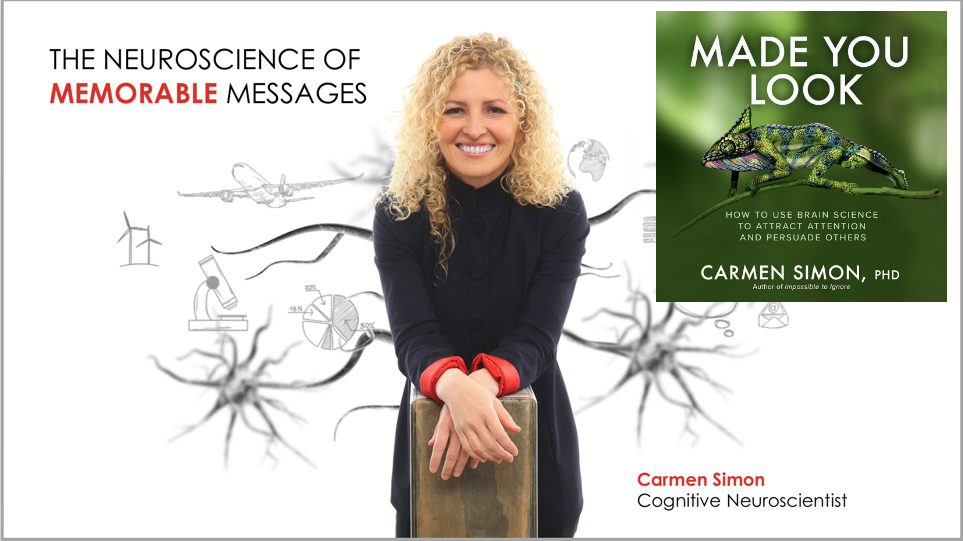¡Desconecta con la aplicación Player FM !
The Neuroscience Behind Memorable Marketing Messages – Interview with Carmen Simon
Manage episode 445236664 series 1187542
On this episode, Carmen Simon, PhD, joins the podcast to discuss her recent book
Made You Look: How to Use Brain Science to Attract Attention and Persuade Others. She is a cognitive neuroscientist, keynote speaker, and author who is
changing the way we understand attention, memory, and decision-making.

She’s the chief science office at CorporateVisions where she helps the world’s most
visible brands create memorable and actionable content using brain science.
Dr. Simon also teaches at Stanford University and speaks frequently to audiences
about crafting communication that is not only memorable but also sparks action!
Her latest book dives into the science behind why we notice some things and ignore
others. I’m thrilled to have her on the show to discuss how we can all design messages
that not only attract attention but also endure in the minds of our audiences.
The post The Neuroscience Behind Memorable Marketing Messages – Interview with Carmen Simon first appeared on Composites Weekly.
The post The Neuroscience Behind Memorable Marketing Messages – Interview with Carmen Simon appeared first on Composites Weekly.
15 episodios
Manage episode 445236664 series 1187542
On this episode, Carmen Simon, PhD, joins the podcast to discuss her recent book
Made You Look: How to Use Brain Science to Attract Attention and Persuade Others. She is a cognitive neuroscientist, keynote speaker, and author who is
changing the way we understand attention, memory, and decision-making.

She’s the chief science office at CorporateVisions where she helps the world’s most
visible brands create memorable and actionable content using brain science.
Dr. Simon also teaches at Stanford University and speaks frequently to audiences
about crafting communication that is not only memorable but also sparks action!
Her latest book dives into the science behind why we notice some things and ignore
others. I’m thrilled to have her on the show to discuss how we can all design messages
that not only attract attention but also endure in the minds of our audiences.
The post The Neuroscience Behind Memorable Marketing Messages – Interview with Carmen Simon first appeared on Composites Weekly.
The post The Neuroscience Behind Memorable Marketing Messages – Interview with Carmen Simon appeared first on Composites Weekly.
15 episodios
Todos los episodios
×Bienvenido a Player FM!
Player FM está escaneando la web en busca de podcasts de alta calidad para que los disfrutes en este momento. Es la mejor aplicación de podcast y funciona en Android, iPhone y la web. Regístrate para sincronizar suscripciones a través de dispositivos.




